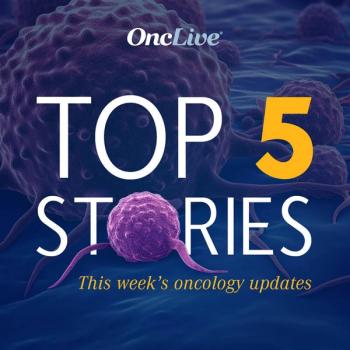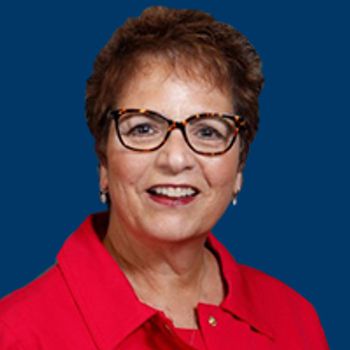
- Vol. 21/No. 18
- Volume 21
- Issue 18
Scramble Over COVID-19 Clinical Trials Holds Lessons for Oncology
Because it is likely that COVID-19 will be around for a considerable period of time, it is hoped that all involved in the clinical research establishment can view this experience as a process that needs substantial improvement.
A recent article in The New York Times Magazine describes a provocative confrontation between a treating physician and a clinical investigator over the therapeutic course for a participant in a coronavirus disease 2019 (COVID-19) clinical trial at a New York hospital.1 Assuming the facts as stated in the article are accurate, the physician wanted to modify the blinded protocol-assigned treatment paradigm that, in her judgment, was failing to provide satisfactory results. In response, the research physician argued that scientific investigatory principles should be maintained: “Relying on gut instinct rather than evidence, he told them, was essentially ‘witchcraft.’ ”
This anecdote is striking because it so clearly lays out the often hidden truth related to potentially vastly different views on the role of a physician and their relationship with a patient versus the role of a clinical investigator and their relationship with a research subject participating in a therapeutic study. The physician, as depicted in this article, viewed the patient’s welfare as her major, if not sole, responsibility, whereas the investigator apparently felt a split loyalty to optimizing the patient’s care while also attempting to ensure as much as possible the fidelity of the ongoing research effort. At times, as highlighted in the article, those loyalties may be in substantial conflict. It is uncertain whether individuals who agree to participate in a therapeutic trial, particularly in potentially life-threatening situations, fully understand this highly relevant distinction.
Compounding this disquieting issue is the matter of assessing objectively the quality, optimal design, timeliness, and likelihood of completion and subsequent publication of many COVID-19 trials, also a concern regarding clinical studies in the oncology arena. This question is critical because patients who are asked to become research participants are specifically informed that a major—if not the major—purpose of their participation is to help develop generalizable knowledge that may be of relevance to future patients outside the investigative setting. If clinical trials in a given area are failing to achieve their prospectively stated accrual goals in a substantial percentage of cases, what does that say about the fundamental adequacy of the informed consent process?
Consider, for example, this observation reported in a recent peer-reviewed publication: Of 674 randomized trials involving COVID-19 infections listed on the ClinicalTrials.gov registry, 28.9% did not include a comparative control group that was either a formal placebo design or an acceptable standard of care.2 Of these trials, just 35.8% were multicenter, raising the question of the likelihood of whether many such studies would complete their accrual in a reasonably timely manner.
Further, and perhaps most remarkable, chloroquines were being tested in 132 of 562 randomized studies (23.5%).2 Let me repeat that number so that the absurdity of the current state of affairs can be fully appreciated: There were 132 individual registered randomized trials examining a single drug (eg, hydroxychloroquine or chloroquine) in the management or prevention of COVID19. And, if one solely examined prevention trials, a total of 86,950 participants would be needed for the registered studies examining chloroquine.2
Is this a rational situation? How many of these studies will be completed and ultimately provide data that will meaningfully affect the future treatment or prevention of COVID-19? Of course, asking this question is quite different from wondering how many of these studies will simply result in a peer-reviewed publication and subsequently adorn the résumé of the authors.
Significantly, the scientific community in the United Kingdom was able to initiate, complete, and report a landmark study related to the use of dexamethasone involving 6425 hospitalized patients randomized over a period of about 12 weeks. Investigators reported that the drug lowered 28-day mortality among patients receiving invasive mechanical ventilation or oxygen alone.3
By contrast, the massive resources of the United States have produced little more than a report about results of the uncontrolled use of convalescent plasma in at least 70,000 patients with COVID-19, leading to the conclusion that the strategy is reasonably safe and may provide some level of benefit to a poorly defined patient population.4,5
To be crystal clear, the successful conduct of randomized trials in this highly complex setting is difficult and will require major coordinated regional or national efforts; however, the United Kingdom’s scientific and regulatory communities have shown that this can be done. One would have hoped that relevant research, regulatory, and governmental communities bodies with essential representation from patients and their families in the United States could have worked together to quickly initiate and complete meaningful studies designed to thoroughly and objectively evaluate multiple strategies in different stages of the COVID-19 infectious process (eg, prophylaxis, early asymptomatic, mildly symptomatic nonhospitalized, hospitalized, intensive care admission, ventilator requirement, postacute infection) to answer critical questions relevant to all patients, whether they live in New York City, Los Angeles, or New Orleans.
Because it is likely that COVID-19 will be around for a considerable period of time, it is hoped that all involved in the clinical research establishment can view this experience as a process that needs substantial improvement.
Perhaps we can learn a lesson as we develop future real-world experience with anticancer strategies. For the benefit of all society, can we devise effective strategies to quickly initiate and complete high-priority oncology studies that answer clinically relevant questions across multiple geographies, patient demographic groups, and health care systems in a far more efficient manner than we do today?
References
- Dominus S. The Covid drug wars that pitted doctor vs. doctor. New York Times. August 5, 2020. Updated August 8, 2020. Accessed August 25, 2020. https://www.nytimes.com/2020/08/05/magazine/covid-drug-wars-doctors.html2.
- Kouzy R, Jaoude JA, Garcia Garcia CJ, El Alam MB, Taniguchi CM, Ludmir EB. Characteristics of the multi-plicity of randomized clinical trials for coronavirus disease 2019 launched during the pandemic. JAMA Netw Open. 2020;3(7):e2015100. doi:10.1001/jamanetworkopen.2020.151003.
- Horby P, Lim WS, Emberson JR, et al; RECOVERY Collaborative Group. Dexamethasone in hospitalized patients with COVID-9 ― preliminary report. Published online July 17, 2020. N Engl J Med. doi:10.1056/NEJMoa20214364.
- Gottlieb S, McClellan M. Betting on better drug trials to beat Covid-19. Wall Street Journal. August 24, 2020:A17.5. Clinical memorandum. FDA. August 23, 2020. Accessed August 25, 2020. https://www.fda.gov/media/141480/download
Articles in this issue
over 5 years ago
Study Endorses Benefits of Population-Based BRCA Screeningover 5 years ago
Investigators Untangle Emerging Strategies in Gastric Cancerover 5 years ago
Interest Builds for Targeting TIGIT Checkpointover 5 years ago
Traina Helps Navigate Surge of New Breast Cancer Therapies





































